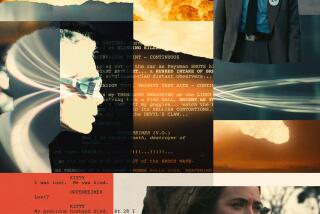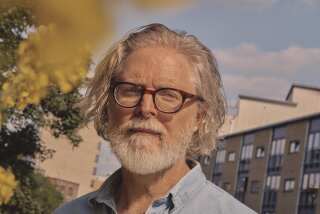Can you help create a literary, text-only version of ‘The Clock’?
“We have heard the chimes at midnight.” That’s from “Henry IV part II” by William Shakespeare. And it could kick off a literary, textual daylong tale inspired by “The Clock.”
Christian Marclay’s 2010 art piece “The Clock” is a film installation. Marclay cut together 24 hours worth of time passing in film -- watch-checking, clocks in the background, people saying the time. The thousands of clips are sequential, and when the piece is screened it is synced to the time of day in the real world.
The piece is so unique in that it inspired the book section of The Guardian to see if it could create a literary version. Are there enough passages from novels, short stories, plays and poems that reference time to build a text version of “The Clock”?
They can’t do it on their own. Marclay spent more than two years, and had six assistants, to create his work. The Guardian had begun this project and set it aside, and now, with two weeks to go before the Edinburgh Book Festival, they’re hoping to complete it with your help.
If you can think of a literary passage that references time, submit it online here.
The passages might be something like this, from Leo Tolstoy’s “Anna Karenina”: “‘Yes, I must go to the railroad station, and if not there, then somewhere else, to punish him.’ She looked at the time-table in the newspaper. The evening train went at two minutes past eight. ‘Yes, I shall have plenty of time.’”
The thing about “The Clock” is that it ticks away in lockstep with time ticking away in real life. “I’ve always thought of this piece as a giant memento mori,” Marclay told The Times. “You’re constantly reminded that you’ve wasted an hour of your time, and you’re constantly reminded about this thing that you’re trying to figure out: time.”
A text version won’t work quite the same way. It can talk about the hours passing, but how that time passes will be unique to each reader. We read at different rates, can get distracted or close the page, and time stops in a book. In the film and real life, time clicks on regardless of our actions; with a book, time moves only as quickly as the reader allows it to.
ALSO:
Astronaut Chris Hadfield’s first book lands in October
Williams’ Book Store in San Pedro to close after 104 years
Carolyn Kellogg: Join me on Twitter, Facebook and Google+
More to Read
Sign up for our Book Club newsletter
Get the latest news, events and more from the Los Angeles Times Book Club, and help us get L.A. reading and talking.
You may occasionally receive promotional content from the Los Angeles Times.







